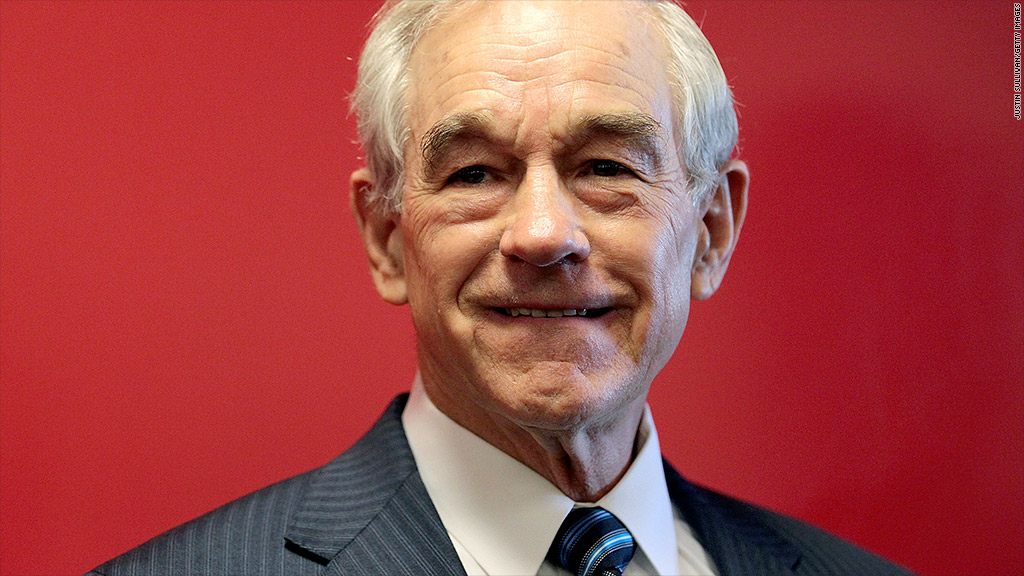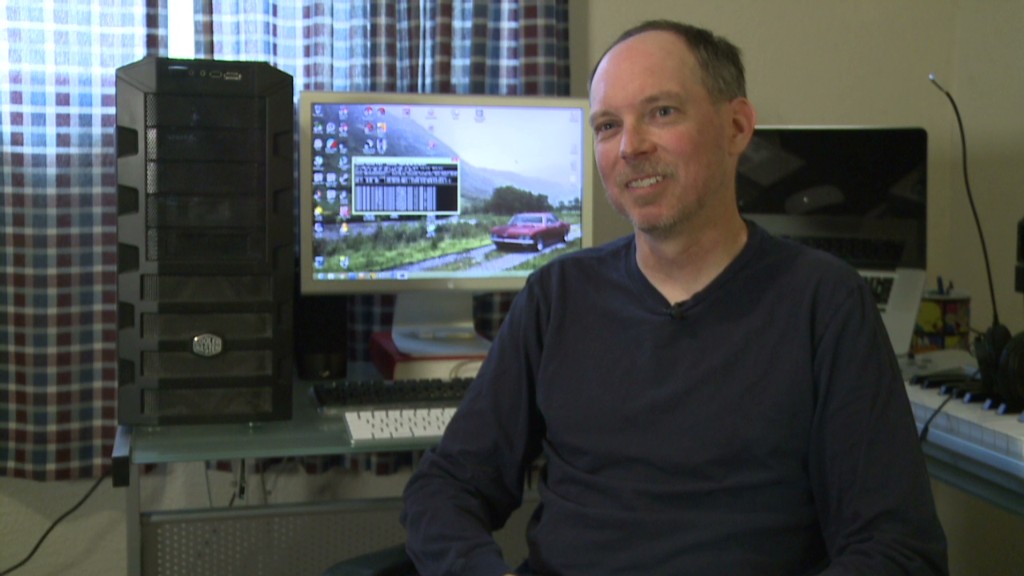
Imagine a world in which you can buy anything in secret. No banks. No fees. No worries inflation will make today's money worth less tomorrow.
The digital currency Bitcoin promises all these things. And while it's far from achieving any of them -- its value is unstable and it's rarely used -- some have high hopes.
"There will be alternatives to the dollar, and this might be one of them," said former U.S. congressman Ron Paul. If people start using bitcoins en masse, "it'll go down in history as the destroyer of the dollar," Paul added.
It's unlikely that Bitcoin would replace the dollar or other government-controlled currencies. But it could serve as a kind of universal alternative currency that is accepted everywhere around the globe. Concerned about the dollar's inflation? Just move your cash to bitcoins and use them to pay your bills instead. Tired of hefty credit card fees? Bitcoin allows transactions that bypass banks.
Even economists who embrace the power of central banks, like University of Michigan professor Miles Kimball, recognize the currency's potential.
"Bitcoin really shows governments are behind the curve," Kimball said. "It demonstrates there's a demand for an electronic equivalent of cash."
Bitcoin is hardly the first attempt at a digital currency that operates outside of state boundaries. Ebay's (EBAY) PayPal plans to launch a digital interplanetary payment system. There's also growing support for a concept called seasteading, floating cities on international waters where business and innovation aren't held back by laws.
Millions of Africans, particularly in Kenya, make payments simply by texting one another. The widely used M-PESA system allows people to bypass banks and electronically transfer cash. Some even use mobile minutes as a form of currency.
Digital payments make buying items internationally a smoother process, because exchange rates are gone and there are no cumbersome bank regulations or fees. It also enables people to make payments in areas without bank access or where carrying cash can be dangerous.

However, Bitcoin has advantages other digital payment systems don't. Transactions don't require names -- just digital wallet IDs -- which makes them more private than credit cards.
More importantly, the system was designed to produce a slow and steady supply of bitcoins, making it less susceptible to losing value via inflation.
"That's the holy grail for people who believe in freer markets and currency," said Adam Gurri, a libertarian economics writer in New York.
There are no middlemen charging fees to move money between users. You can transfer bitcoins -- even infinitesimally small fractions of one -- directly to others' digital wallets.
Related: Bitcoin worth $9M buried in garbage dump
But don't expect governments and banks to let Bitcoin take over so easily. Financial institutions will lose business if people stop using their payment systems, and central banks like the U.S. Federal Reserve would lose their ability to help slow and speed up economic activity. Paul expects banks to lobby and authorities to crack down.
"Governments absolutely demand a monopoly on money and credit. They're not going to give it up easily," Paul warned. "They will come down hard."
Kimball hopes politicians will take a less combative approach, choosing instead to compete.
"I suppose they could just try to crush Bitcoin, but that's the wrong way to do it," Kimball said. "Governments should be creating their own version of Bitcoin. They should be ashamed they haven't."
But everyone agrees that restraining Bitcoin's development would negate any of its promises to entrepreneurs.
"We have to make improvements in our payment system. The progress of humanity depends upon it," said Mark Thornton, a senior fellow at the Ludwig von Mises Institute, a libertarian economic organization in Alabama.

